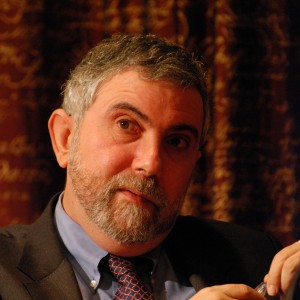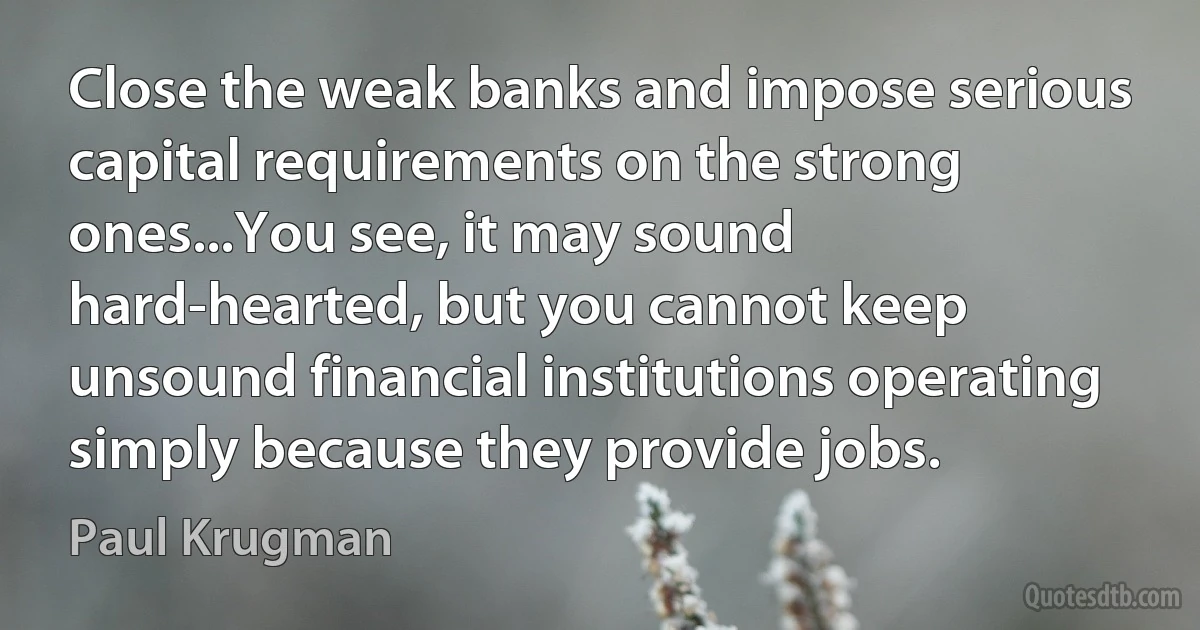Paul Krugman quotes - page 6
Paul Krugman is an American economist, professor, and author, recognized for his influential work in international economics and trade theory. His writings frequently address economic policy, inequality, and globalization. He has received the Nobel Memorial Prize in Economic Sciences and is a widely read public intellectual. Here are 150 of his quotes:
No, the problem that the politicians have with the professors is not one of failure to communicate; it is one of failure to say what politicians want (need) to hear, especially when they are trying to seize power from other politicians. And necessity is the mother of invention: a different group, the policy entrepreneurs, has arisen to fill the gap.

Paul Krugman
Milton Friedman was not surprised. In 1968, in one of the decisive intellectual achievements of postwar economics, Friedman not only showed why the apparent tradeoff embodied in the idea of the Phillips curve was wrong; he also predicted the emergence of combined inflation and high unemployment, which Paul Samuelson dubbed "stagflation."

Paul Krugman
A casual reading of the development literature suggests that there is a dividing line circa 1960. Before 1960 writers on development generally assumed as a matter of course that economies of scale were a limiting factor on the ability to profitably establish industries in less developed countries, and that in the presence of such economies of scale pecuniary external economies assume real welfare significance. They seem, however, to have been unaware of the degree to which economies of scale raise problems for explicit modeling of competition, and/or of the extent to which the drive for formalism was pushing economics toward explicit models.
After 1960, by contrast, economists working on development had been trained in the formalism of constant-returns general equilibrium, and did not so much reject the possibility that economies of scale might matter as simply fail to notice it.

Paul Krugman
The irony, of course, is that high development theory was right. By this I do not mean that the Big Push is really the right story of how development takes place, or even that the issues raised in high development theory are necessarily the key ones for making poor countries rich. What I do mean is that the unconventional themes put forth by the high development theorists their emphasis on strategic complementarity in investment decisions and on the problem of coordination failure - did in fact identify important possibilities that are neglected in competitive equilibrium models. But the high development theorists failed to convince their colleagues of the importance of those possibilities. Worse, they failed even to communicate clearly what they were talking about. And so good ideas, important ideas, were ignored for a generation after they were first enunciated.

Paul Krugman
So what's the moral? We've seen how the insistence on models that meet the standards of rigor in mainstream economics can lead to neglect of clearly valuable ideas. Does this mean that the whole emphasis on models is wrong? Should we make a major effort to open up economics, to relax our standards about what constitutes an acceptable argument? No-the moral of my tale is nowhere near that easy. Economists can often be remarkably obtuse, failing to see things that are right in front of them. But sometimes a bit of obtuseness is not entirely a bad thing.

Paul Krugman
Paul Krugman
 Occupation: American Economist
Occupation: American Economist
Born: February 28, 1953
Quotes count: 150
Wikipedia: Paul Krugman












